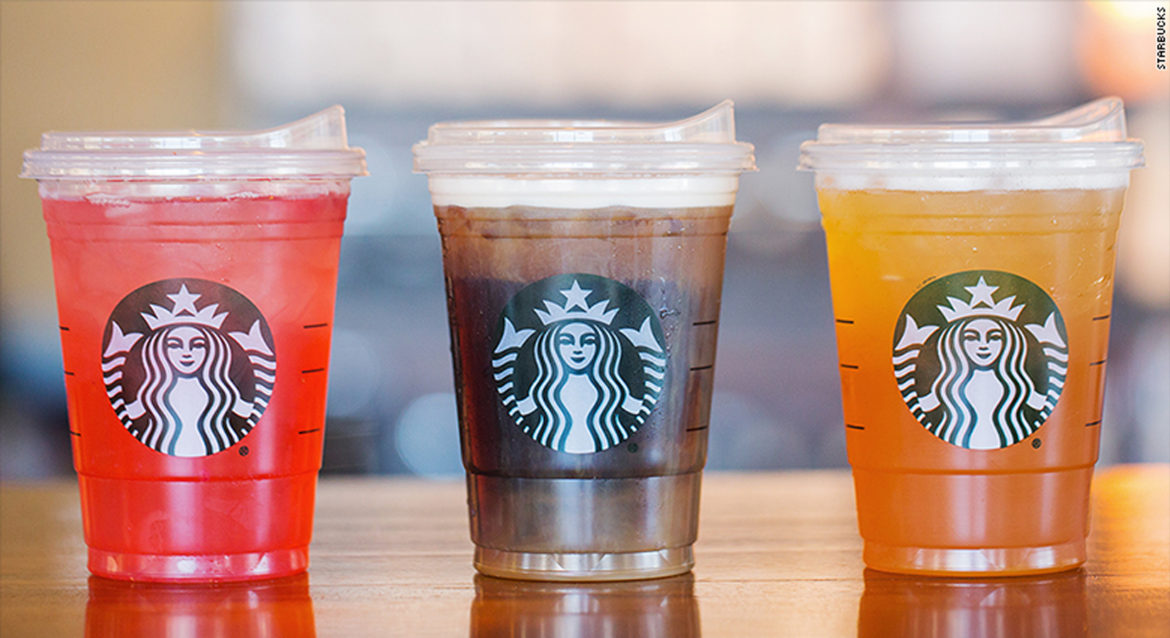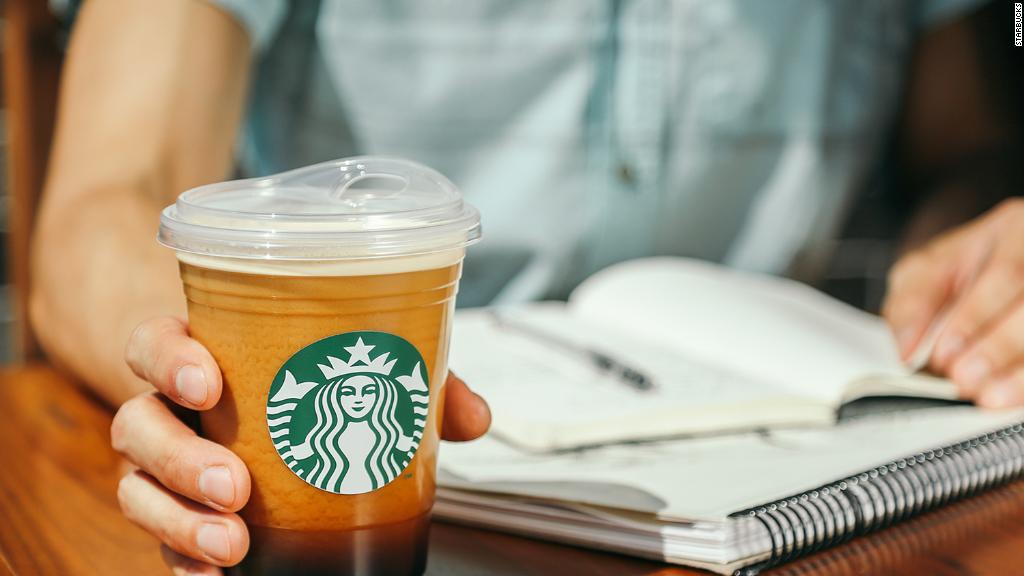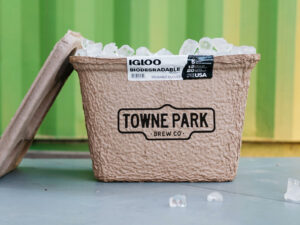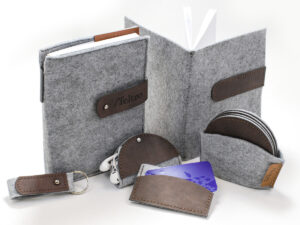
Washington Post: “Starbucks, which doles out more than 1 billion straws a year, says it will phase out single-use plastic straws from its stores by 2020.
The coffee giant – the largest retailer to commit to eliminating single-use plastic straws – said Monday that it will replace the ubiquitous plastic straw with recyclable “strawless lids,” as well as straws made from biodegradable materials, as part of a no-plastic-straws movement that has gained momentum in recent years.

Starbucks — which has more than 28,000 stores and generated $22.4 billion in annual revenue last year — said that more than half of its beverage sales come from cold drinks, which typically come with a plastic straw.
At Starbucks, executives said the efforts are part of a $10 million plan to develop cups and lids that are fully recyclable and compostable. Stores in Seattle and Vancouver will be the first to begin using the new strawless lids — essentially a top with a built-in lip for easy drinking — which will be used for iced coffee, tea and espresso drinks beginning in the fall. Ice-blended Frappuccinos, meanwhile, will be served with straws made of paper or compostable plastic.
The company also offers a 10-cent discount to customers who bring in their own cups.
Starbucks declined to comment on the financial impact of replacing plastic straws, which have become widely used in restaurants in part because they are so cheap. (Starbucks now charges a 5-pence paper cup fee in its U.K. stores, though it was unclear whether the company would add similar surcharges in the United States.)
The no-straw movement, which had already been brewing in certain communities and beach towns, gained mainstream traction three years ago after a video showing a sea turtle with a plastic straw wedged in its nose went viral. Plastic straws never completely decompose and can be harmful, even fatal, to animals that ingest them.
A number of local governments — from Malibu, Calif., to Miami Beach, Florida — have recently passed legislation restricting the use and distribution of plastic straws. Starbucks’s hometown of Seattle banned plastic straws and utensils beginning this month, while California cities including Malibu, Davis and San Luis Obispo prohibit restaurants from handing out plastic straws unless a customer requests one.
Restaurants and private establishments have also taken measures to curb their use of plastic straws. Some offer more environmentally friendly alternatives, such as straws made of paper, bamboo, steel, even Twizzlers. Walt Disney World has banned plastic straws at some of its theme parks, while the Smithsonian Institution has taken steps to eliminate them from its museums. Hyatt Hotels said Monday it will stop offering plastic straws and picks to customers at its 700 hotels, unless they specifically ask for one.
“This is a significant milestone to achieve our global aspiration of sustainable coffee, served to our customers in more sustainable ways,” Kevin Johnson, president and chief executive of Starbucks, said in a statement.
Plastic straws typically cost less than a half-cent each, while paper varieties can easily run four times that, according to Kara Woodring, a sales representative at Aardvark, a Colo.-based paper straw manufacturer. But, she said, demand for alternatives to plastic have been on the upswing for over a decade. Ted’s Montana Grill, the restaurant chain founded by media mogul Ted Turner, was one of the earliest to switch to paper straws back in 2007.
“Straws are kind of an unnecessary item we’ve gotten accustomed to,” Woodring said earlier this year. “If you can go without, that’s great.”
The announcement by Starbucks comes four weeks after McDonald’s announced it would replace plastic straws with paper ones at its 1,300 restaurants in the U.K., where plastic straws and stirrers will be banned beginning next year, and Ireland. The fast-food giant, which is the world’s largest restaurant chain by revenue, is also testing alternatives in the United States and now offers compostable straws in Seattle.”




